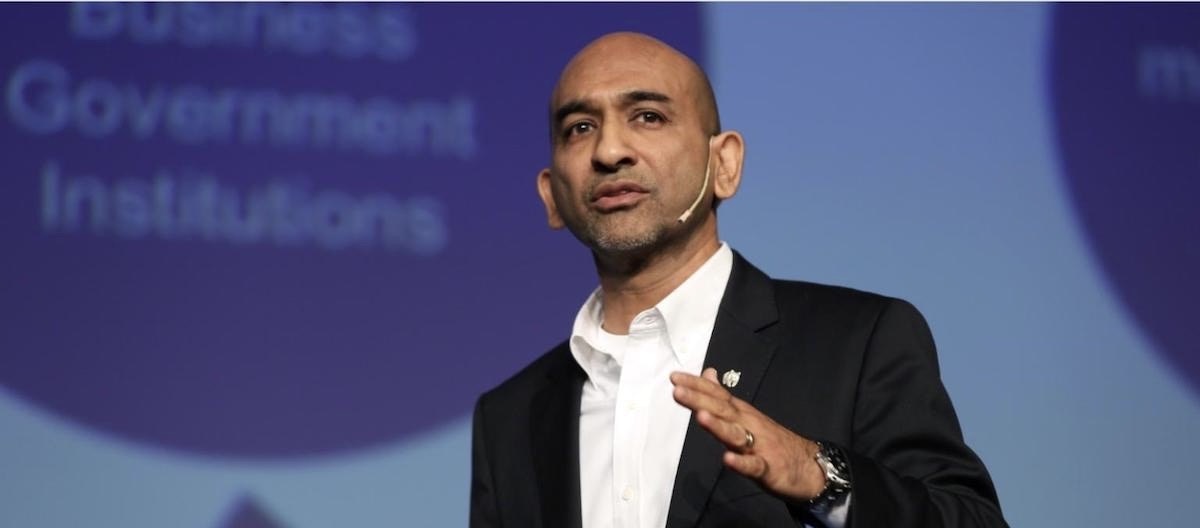The chief impact officer is the newest animal in the C-suite jungle. But while it sounds like a head of CSR (corporate social responsibility) rebrand, it’s actually more analogous to a chief revenue officer. If a CRO is responsible for every process that generates revenue in a startup, a chief impact officer (CIO) is responsible for every process that generates any kind of social and environmental impact, as defined by the company’s mission and values.
Admittedly the title can inspire some scepticism; “impact” is a loaded word. But let’s table that for a moment because whatever you want to call the role, it’s one that will be filled by startups everywhere and soon. Here’s why.
1. The market expects more out of startups now
Whether it’s global warming, the pandemic or social injustice, the world is facing very real challenges that require everyone to pull their weight.
Talent, investors, governments, and the public at large expect startups to have opinions (and actions) to address the big issues at hand. After all, startup products and services now permeate just about every aspect of our lives — how we travel, how we feed ourselves, how we educate our kids and more. We are moving into a world where a startup’s values will directly impact their ability to hire great talent, close deals, keep up with policy and generally speaking do business.
Of course, there are great business arguments to taking impact seriously. But let’s keep our eye on the ball: if it attracts talent, mitigates risks and feeds financial results, that’s great — but to stay sincere, those outcomes should be an after-effect of a CIO’s work, not their main driver.
2. You need someone to pick your battles or you’ll end up underwater
The market expects you to act — but if you try to do everything you end up doing nothing. Or worse, you end up sowing seeds of discord within your own company. A CIO can help steer your company’s ship based on its values — and keep the ship firmly on course.
At Contentsquare, for example, our just cause is to “Empower organisations to create digital experiences people love, seek and deserve. Digital experiences made human.” While our revenue comes from digital experience analytics, I believe that our mission doesn’t have to end there. If great UX can drive revenue, then it can — and should — also drive positive change.
A CIO can help steer your company’s ship based on its values — and keep the ship firmly on course
Over the next few months, I will be leading efforts to extend our mission beyond the core business. Instead of focusing only on segments that drive revenue — ecommerce, financial services, etc — we will begin exploring what our product could do for non-profits and public service organisations. Whether it's through our core business or our foundation, we will also be striving to make the internet more inclusive for people with disabilities, as well as furthering sustainable web design and digital trust.
To succeed in this externally facing mission, we need to be aligned internally. This means stepping up when it comes to our own responsibilities: achieve higher standards towards our end users (in data ethics and privacy), employees (through diversity and inclusion) and the planet.
3. Impact is *really* hard to coordinate at a strategic level
If you say that impact is something important to your company (which just about every founder says, by the way), then it needs to be handled at the level it deserves: the C-suite. I’ve seen impact sitting in marketing or HR functions at startups — a setup that’s doomed to fail.
First, impact needs a champion at the highest level. Running a startup is like building a plane while flying it. Without someone taking charge of impact within a startup’s complex structure, carving out the budget and relentlessly advocating for it at the highest level, any impact strategy you establish may wind up sounding like lip service.
Without someone taking charge of impact within a startup’s complex structure...any impact strategy you establish may wind up sounding like lip service.
Additionally, impact and responsibility are necessarily cross-functional. The whole notion of impact as a minor issue separate from your day-to-day operations is dated. Let’s go back to the analogy of the CRO: the role brings together different revenue-related functions, from marketing to sales, customer success, pricing and rev-ops. On top of business as usual, CROs are always cooking up new ways to drive more revenue beyond the core business. That could involve working cross-functionally with product to develop new premium features, or with corporate development to accelerate market expansion in new geographies through M&A.
Impact is the same. In my case, our work will require both a team and a roadmap that spans people operations, product innovation, philanthropy, marketing, operations and legal. No meaningful impact is possible on a large scale if you try to keep impact in its own silo, period.
4. You need dedicated C-suite bandwidth to navigate the rapidly evolving landscape
Norms, values and needs relating to sustainability, DE&I or philanthropy have changed and they will continue to change. Companies need to be ready to learn and adapt, but the learning curve is steep and it’s permanent.
This is why you need a CIO dedicated to grappling with the complex questions that your company might face. Some of the questions I had in mind on my first day: how to respond to employees that want to know what our non-American company’s stance is on Black Lives Matter; how to measure our DE&I goals when it’s illegal to identify workers based on race in France; how to ensure that our product team stays ahead of the curve of policy changes like the EU’s upcoming ePrivacy directive; which metrics we use to gauge performance. And of course, how our mission can inform our answers to these questions and allow us to respond with integrity.
5. Moral sustainability is imperative if you’re building something that is meant to last
If you’re a founder looking for a quick exit in a few years, then maybe you don’t need a CIO. But if you’re thinking big and if you believe that you are building something that you believe will last then you cannot take on “moral debt”.
When it comes to your impact, you can’t borrow from the future — it isn’t something that you can just “work out later” once the company is public.
For this reason, I believe that freshly-founded companies have the best chance of establishing impactful frameworks in their companies. The bigger your company gets, the harder it becomes to proactively embed impact into your operations. As Facebook has shown, once you’ve broken trust, you can’t just piece it back together. Adding defensive CSR measures further on down the road will inevitably get written off as insincere.
The bigger your company gets, the harder it becomes to proactively embed impact into your operations
That’s my pitch, but don’t get me wrong — a CIO is not a panacea. It’s just a step to a much longer journey you make as a team to make impact a priority.
On Day One, I don’t have everything figured out. But I have a good feeling that this is the right company to work it through with. And while I may be one of the first CIOs at a unicorn today, I hope that by the same time next year I’ll have more company.


